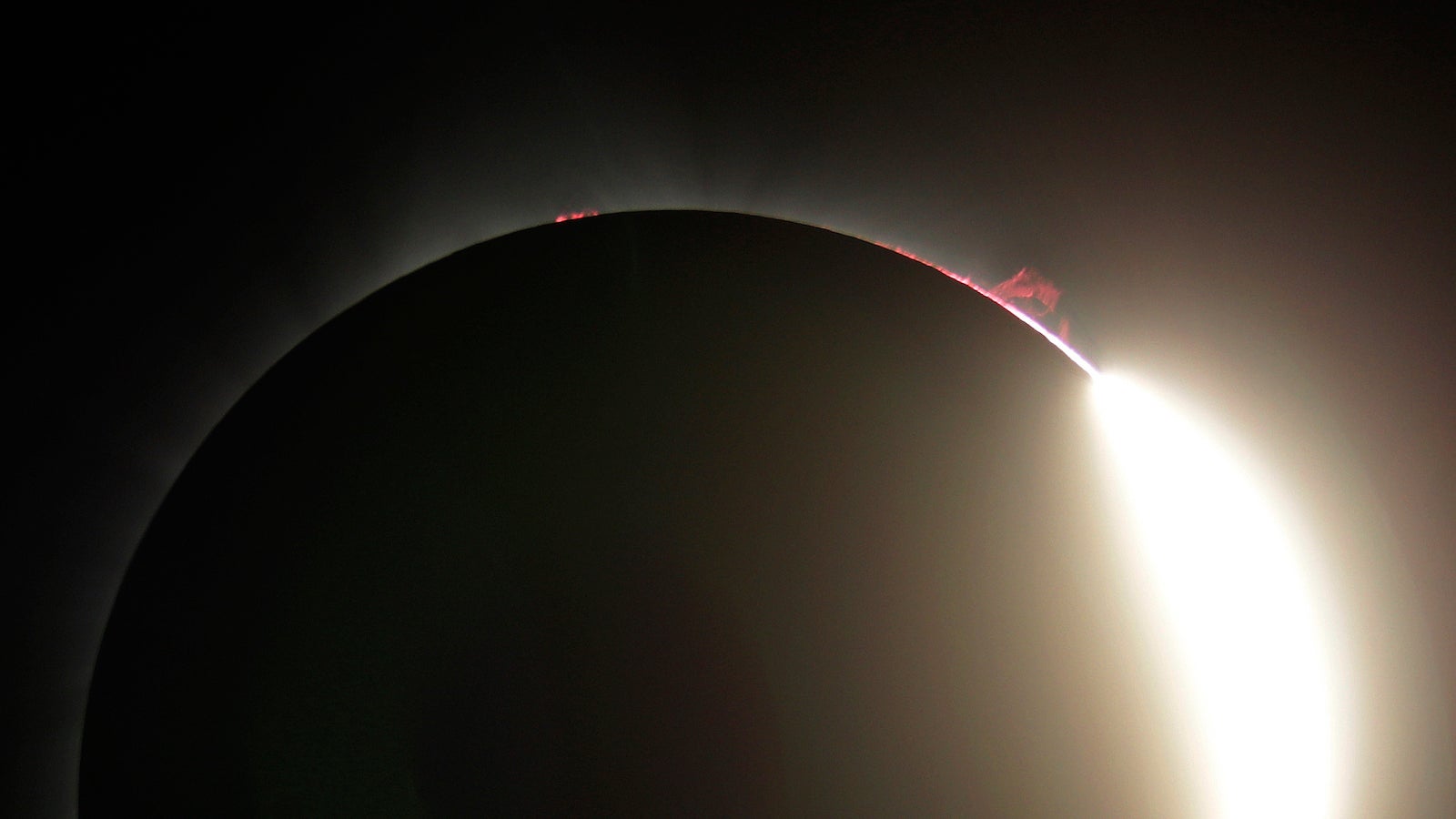Three things you can do to get over your post-eclipse blues, according to a psychotherapist
It’s over. After all the buildup, all the hype, and all the excitement, the total solar eclipse has come—and gone. Maybe you saw it. Maybe you didn’t. Maybe you never got organized enough to get yourself a pair of special glasses, or were thwarted by cloud cover. Or maybe you joined the pilgrimage of people who traveled to another state to gaze at the sky.


It’s over. After all the buildup, all the hype, and all the excitement, the total solar eclipse has come—and gone. Maybe you saw it. Maybe you didn’t. Maybe you never got organized enough to get yourself a pair of special glasses, or were thwarted by cloud cover. Or maybe you joined the pilgrimage of people who traveled to another state to gaze at the sky.
No matter what you did or didn’t do, it’s likely that the brief, 150 seconds of darkness in the middle of the day didn’t change your life. You saw—or couldn’t see—and then went back to work, back to the same menial tasks you were doing before; the ones that don’t involve astral light shows or the wonders of the solar system. You don’t feel moved, happy, or exultant. In fact, what you feel is a little… empty. A little blue. A little let down. Or maybe even more than a little of all of those things. You really didn’t expect something earth-shattering, of course—but you didn’t expect to be disappointed, either.
Feeling disappointed, even a little angry, at getting caught up in all the pre-eclipse excitement is a completely normal reaction. And you’re certainly not alone in feeling any of this. When something special happens, we feel a natural sense of exhilaration in reaction to the flow of hormones and chemicals our bodies produce. Endorphins start to surge, and that “high” feeling colors our expectations of something truly awesome.
And then reality happens. The endorphins and other feel-good chemicals stop coursing through our bodies, the high wears off, and we start to feel a physiological comedown, as well as a psychological one. The body is not only releasing itself from an uptick of stress hormones, but also neurotransmitters and endorphins that put us in an improved mood and state of mind.
Was that really it?
If you’re feeling a little let down, here are three ideas for dealing with post-eclipse blues:
- Don’t take the feelings too seriously. What you are experiencing is a completely normal physiological response to a rush of neurochemicals leaving your bloodstream. You didn’t do anything wrong, and there’s nothing you can do to stop it—it’s simply that the moment wasn’t as big a deal as the media blitz led us to believe, and that bland reality is now no longer hidden behind the moon.
- Appreciate what you did. Take stock, evaluate what happened, and reflect on the pleasures of the experience. Did you have a good time? Did you learn a new science fact or two? Did you meet a new and maybe interesting person as you clamored over sharing glasses? The moment may have passed swiftly—but there may be some lasting good that came from it.
- Move on. Make plans for future adventures, achievements, and activities. Maybe you’ll do some research on solar events. Maybe you’ll start doing some nighttime stargazing. Or maybe this was a one-and-done, and you’ve had enough. Whatever it is, start thinking about the next big event you can look forward to—maybe something with a little more staying power, this time.
So if you’ve been left feeling a little dark, don’t despair: You only have to wait until 2024 for your brain to be bathed in those delicious chemicals once more.
Learn how to write for Quartz Ideas. We welcome your comments at [email protected].
Read this next: Suffering from the post-eclipse blues? Psychology explains why you feel sad after a big event